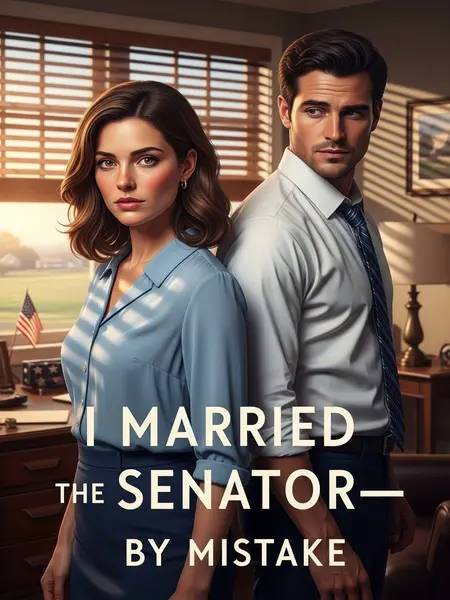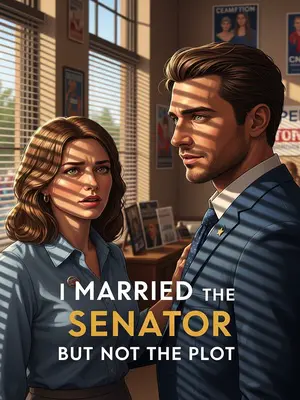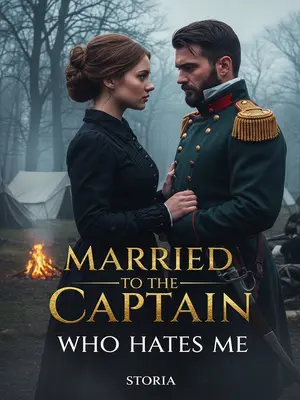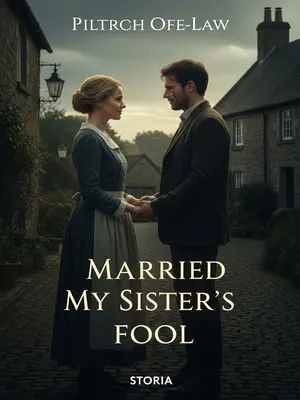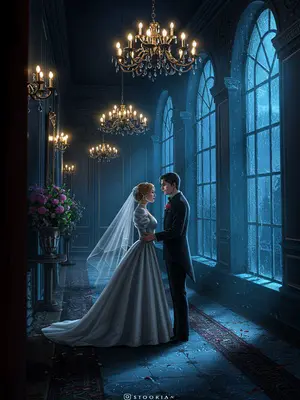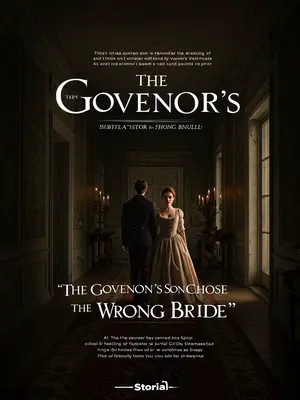Chapter 5: Roommates, Rivals, and Real Feelings
When we first arrived, Mason arranged for me and Owen to share a room. Honestly, I still don’t know what his pajamas look like.
The arrangement was awkward at first, but we quickly settled into a routine. I claimed one side of the bed, he claimed the other. We both pretended not to notice.
Not because he refused to sleep with me, but because he worked so late and got up so early.
Most nights, I fell asleep before he even made it to bed. In the mornings, I’d wake to find him already dressed and heading out the door.
I remember the first night, Owen told me to go to bed first and not wait up.
His voice was gentle, but firm. I nodded, grateful for the chance to rest.
I tossed and turned, thinking about all the romance novels I’d read: playing hard to get never works, and when in doubt, just take precautions.
I replayed every awkward scene in my head, wondering if I was making the right choices. In the end, exhaustion won out, and I drifted off to sleep.
But even after thinking about all that, he never came back, and I eventually fell asleep in the corner of the bed.
The sheets were cool, and I curled up under the blanket, listening to the sounds of the camp outside.
The next morning, I woke up to find the sheets beside me a little rumpled, but the blanket was neat.
I smiled, realizing we’d both found a way to coexist without stepping on each other’s toes.
So I found an excuse to visit the office and, after a lot of hesitation, asked where he’d slept.
My voice was hesitant, but Owen just shrugged, as if it was no big deal.
Owen didn’t even blink. “In the room, of course. Didn’t want to wake you, but you sleep like a rock.”
His words were teasing, and I felt my cheeks flush. I made a mental note to set an alarm next time.
My suspicions were confirmed, and I was kind of annoyed. We were just roommates, but technically sharing a bed.
I tried not to overthink it, but the thought lingered in the back of my mind.
I’m a modern woman, but it was my first time sleeping next to a man—of course I felt something.
I rolled my eyes at myself. Determined not to let my feelings get the best of me.
But I didn’t dwell on it. Owen was always up early and out late. If I woke up early, I’d see him getting ready for work. During the day, I followed him everywhere, and by night I was so tired I just crashed, forgetting all about romance.
It was a strange kind of intimacy—shared exhaustion, mutual respect, and the quiet comfort of knowing someone was always nearby.
From another angle, I could see why people like Mason were so loyal to him.
Owen inspired loyalty, not just with words, but with actions. He led by example, and people followed.
One afternoon, I helped Owen hand out food and saw a little boy, maybe five or six, waiting in line by himself.
He was clutching a battered teddy bear. His eyes were wide with fear. My heart broke for him.
He was dirty and ragged, his hair a mess.
His clothes hung off his small frame, and I wondered how long it had been since he’d had a proper meal.
I knelt down and asked gently, “What’s your name? Where’s your family?”
I tried to keep my voice soft, not wanting to scare him. He looked up at me, eyes shining with unshed tears.
He answered shyly, “My name’s Jamie. My mom… she got washed away by the water.”
His voice was barely above a whisper, and I felt tears prick my eyes. I reached out, offering him a comforting smile.
“What about your dad?”
He shook his head, hugging his teddy bear tighter.
“Don’t have one.”
His words were simple, but the pain behind them was obvious. I fought the urge to pull him into a hug.
I guessed he’d lived with his single mom, who died in the flood, and now he was on his own.
I made a mental note to check on him later. Determined to make sure he wasn’t forgotten.
There must be a lot of kids like Jamie. Even if they get food, they’re basically on their own.
The thought haunted me, and I resolved to do something about it.
I arranged for someone to watch him, then talked to Owen and Mason.
I found them in the command tent, deep in conversation. I waited for a break, then shared Jamie’s story.
I thought of modern foster care and asked Owen, “Have you thought about what to do with kids like Jamie?”
His expression softened, and I could see the wheels turning in his head.
He nodded, “We’re temporarily housing them at the community center, with volunteers looking after them, and we’ve posted flyers so families can find lost kids.”
His answer was practical, but I could tell he was worried about the long-term.
But I meant, “That’s just for now. What about the future? If no one claims them, what happens?”
I pressed the issue. Determined not to let these kids fall through the cracks.
Owen looked tired as he rubbed his temples. “There’s too much going on. I haven’t thought that far. Got any ideas?”
His honesty was refreshing, and I felt a surge of confidence.
“I have a rough plan.”
I took a deep breath, organizing my thoughts before speaking.
I organized my thoughts. “Why not have the city set up a children’s home? Beyond kids from the disaster, it could help other vulnerable kids in the future. The city would fund it, and they’d get food, shelter, and education until they’re adults.”
I spoke quickly, hoping I wasn’t overstepping. Mason nodded, listening intently.
Owen nodded. “That’s doable, but what if someone wants to adopt a child?”
His question was thoughtful, and I could see he was considering all the angles.
“Even better,” I said, “but if they’re not relatives, you’d need to check their background and income, and maybe ask their neighbors.”
I tried to sound confident, but inside I was nervous. I didn’t want to suggest something unrealistic. Not here.
Mason was puzzled. “I get checking finances, but why the neighbors?”
His question was genuine, and I took a moment to explain.
“To check their character. If someone’s got a criminal record or a bad reputation, you don’t want to hand over a kid to them. Worst case, they could be abusive or worse.”
I spoke from the heart, thinking of all the stories I’d read about kids slipping through the cracks.
Mason nodded. “You’ve thought of everything.”
His praise made me blush, but I was glad he understood.
I realized I didn’t really know the details of how orphanages work—just the basics. And this was a small town. Things couldn’t be copied exactly.
I hesitated, then decided to be honest. “I’m not an expert, but it’s a start. The details can be worked out later.”
So I told Owen, “This is just a rough idea. I don’t know much about city budgets or which department would run it. You’ll have to figure out the details.”
I tried to sound humble, not wanting to overstep my bounds.
Owen thought for a while, his eyes brightening. “That’s a good idea. If there are no hungry kids on the streets, people will trust the government more. I’ll write it up and propose it when we get back.”
His enthusiasm was contagious. I felt a surge of pride.
I was glad to be helpful.
I smiled, feeling like I’d finally made a difference.
As I was about to get back to work, Mason said, “Didn’t expect the senator’s wife to care so much about the people.”
His tone was warm, and I could tell he meant it as a compliment.
His tone was genuinely admiring.
I blushed, ducking my head. It felt good to be seen for more than just my last name.
Well, I may not be as ambitious as Owen, but I was raised to care about others.
I thought of my own hometown, the way neighbors looked out for each other in tough times.
So I said, “If the city takes care of the old and the young, that’s a blessing for everyone.”
My words were simple, but I meant them. Community mattered—always had, always would.
Mason nodded. “I learned something today.”
His words made me smile, and I felt a sense of accomplishment.
Owen looked at me with more respect. “Harper, you surprise me every day.”
His praise was quiet, but it meant the world to me. For the first time, I felt like I belonged.
We stayed up north for over a month. Relief efforts went well, the city rebuilt homes and roads, and life slowly got back to normal.
The days were long, but the progress was real. I watched as families moved back into their homes, kids played in the streets, and hope returned to the community.
With things under control, Owen handed off the rest and we returned to D.C.
The drive back was quiet, both of us lost in thought. I stared out the window, reflecting on everything we’d accomplished.
Owen’s work earned him a lot of praise. The governor wanted to throw a dinner in his honor, but he turned it down, saying he was just doing his job.
His humility only made people respect him more. I watched as the governor shook his hand, promising to support his future initiatives.
